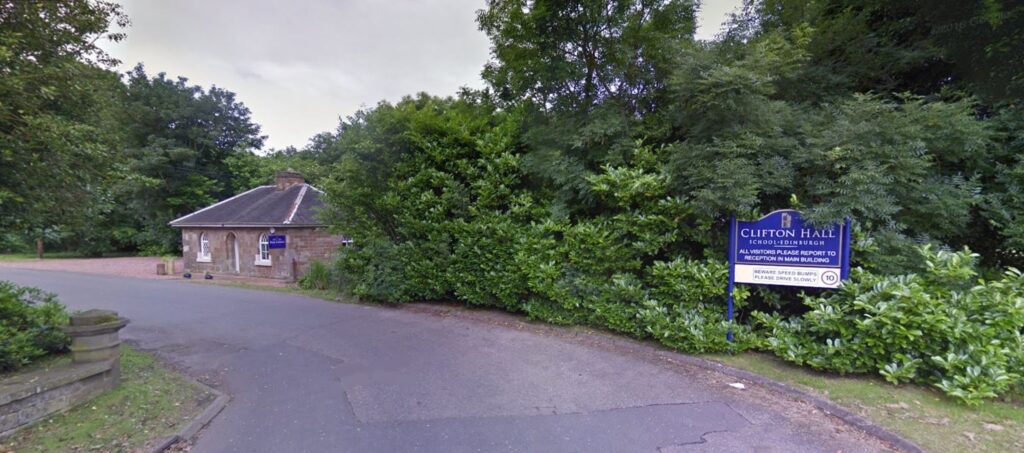A TOP Scots head teacher has accused the Scottish Government of “following their own dogmatic, control-at-all-costs agenda” instead of listening to teachers.
Rod Grant, head of £13,000-per year at Clifton Hall School in Edinburgh, said yesterday that the “mishandling” of education in Scotland should remain a sharp focus.
He believes that the country is witnessing a “slow and steady reduction in attainment compared to our own nation’s historical evidence”.
And the 57-year-old says that only now have the Government started to realise there is an issue with attainment levels.

Mr Grant made reference to studies that performance in reading, maths and science in Scotland is weaker than in 2020.
The Scots head made the comments in response to the publishing of Reform Scotland’s education report earlier this month.
He believes that politicians haven’t been listening to feedback from teachers over the past 15 years.
In a statement titled ‘Scotland’s Meteoric Decline in Educational Standards’, Mr Grant yesterday said: “I have remained quiet over the last few months as the world begins to reset itself.
“The pandemic concerns have begun, finally, to wane. The absurdity of mask-wearing only in school corridors, now behind us.
“The mirth created by the Scottish Government’s suggestion of cutting the bottom off school doors to aid ventilation, long forgotten.
“The mishandling of Scottish Education, however, should remain in sharp focus.
“Why do we have almost no idea if the education system is doing well compared to its historical past?
“Well, I’m beginning to realise that it is because the powers that be don’t want us to know…”
He continued: “The truth, according to PISA, is that our national performance in reading, maths and Science, whilst admittedly being above the OECD ‘average’, is considerably weaker than it was in 2000.
“In other words, what we are actually witnessing is a slow and steady reduction in attainment compared to our own nation’s historical evidence.
“Whilst launching a variety of consultations, many being led by eminent educationalists, the Scottish Government seems now to be acknowledging that there is indeed an issue.
“Shame that it’s taken 15 years to believe what teachers up and down the country have been saying for that entire period.
“One day, Scotland will be led by a Government that listens to the experts, as opposed to following their own dogmatic, control-at-all-costs agenda.”
Mr Grant also listed five areas that he attributes to what he believes is a decline in Scottish educational standards.

The first point he made was that SQA pre-determined pass percentages render year-to-year statistics almost useless.
He cited that in higher maths the pass mark has been as low as 34%, whereas in another year the classic higher exam had a pass rate of well above 50%.
The head teacher questioned the government’s choice not to partake in the Trends in International Mathematics and Science Study (TIMSS) and the Progress in International Reading Literacy Study (PIRLS) studies in 2010 because they knew the outcome wouldn’t be positive.
Mr Grant said that Scotland has never made the top 10 in any test in any curricular area, whilst England and Wales did so regularly.
Clifton Hall School’s head also cited the Scottish Government’s withdrawal from The Scottish Survey of Literacy and Numeracy, which was their own study, that highlights that standards may have been slipping.
The Programme for International Student Assessment (PISA), used to measure Scottish education against other nations, shows that Scotland’s reading, mathematics and science scores have dropped significantly since the turn of the century.
In 2018, reading was scored at 504, and dipped as low as 493 in 2015, compared to 526 which was achieved in 2000.
Mathematics scored at 489 in 2018, but only 12 years earlier it achieved 506.
Possibly the most drastic decline pointed out by Mr Grant was the amount of pupils in S4 that are sitting eight exams.
These have fallen from 38,467 pupils entered for eight standard grades in 2000, to 3,441 entered for 8 Nat 5s in 2019.
In the same years, 7,826 pupils achieved eight standard grades, whereas only 2,809 pupils achieved the same number of National 5’s.
Parents and alumni of the school left comments on Mr Grant’s social media post, supporting him.
Shona Robertson said: “Unfortunately many of the ‘experts’ and ’eminent educationalists’ giving advice to the government are usually academics who have either never taught in a classroom – especially not in a primary classroom – or if they have, their experience is out of date and irrelevant to the present day overburdened curriculum.”
Alison McIntosh said: “It’s awful.
“Scotland used to have an education system to be proud of.
“My kids are at schools that have chosen to do GCSE’s rather than Nat5’s.
“If you are struggling at GCSE you sit the Nat5 as an easier alternative.
“They should be comparable.
“I was at a talk last night at the Edinburgh Science Festival all about the importance of scientific method and how important it is to ask questions and critically evaluate, all skills lost in regurgitating SQA key phrases to get marks.
Gary McAleese said: “Your point on proper external scrutiny and accountability is as depressing as the data.
“It’s something integral to a properly functioning democracy.”
Kirsten Rance said: “Yet again, you speak so much sense.
“It’s a pitiful situation.”
Cheryl Anne said: “I had no idea Scottish education was on such a downturn.”
Speaking today, Mr Grant said: “They [Scot Gov] have withdrawn from major studies, that to my mind means they can’t be held to account.
“After the fiasco of 2020 exams during the first lock down, the Scottish Government brought in a professor from the University of Stirling [Professor Mark Priestley] to basically look at the structure and what went wrong.
“They then brought in Professor Louise Hayward from the University of Glasgow.
“It tells me that they knew they made a big mistake, but they realised far too late.”
A Scottish Government Spokesperson said:
“Curriculum for Excellence (CfE) is a flexible framework which puts decisions about what is taught in Scottish classrooms in the hands of teachers and school leaders, who are best placed to identify the knowledge, skills and attributes their learners need.
“In their independent review, the OECD said CfE is the right approach for Scotland and one that is viewed internationally as an inspiring example of curriculum practice.
“Scotland continues to participate in the largest international survey, the Programme for International Student Assessment (PISA), which is an effective indicator of how the whole Scottish education system is performing, relative to other countries.”

